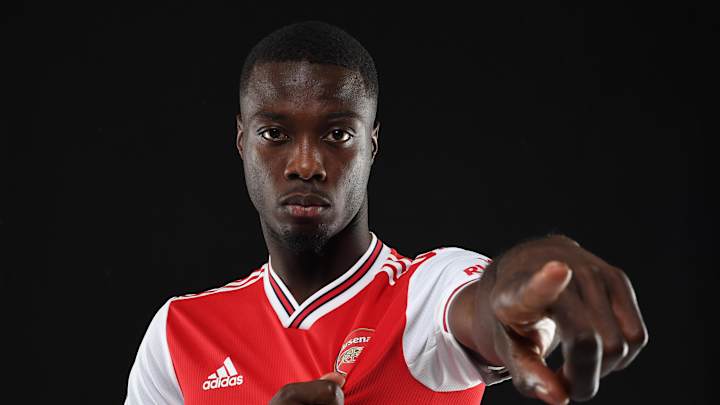Arsenal's Pepe Signing an Admirable Risk, But Won't Fix Club's Structural Problems

The discontent had been growing. As so many revolutionaries discover, it’s never just about removing the figurehead. Arsene Wenger seemed tired by the end of his 22 years at Arsenal, but his departure last summer did not immediately produce an improvement. Rather, once his enormous presence was removed, it became apparent just how much else was amiss at the club.
The record signing of Nicolas Pepe on Thursday does not in and of itself change that. But, equally, an $87.5 milllion signing is a major event. It’s not just that it outstrips by almost $20 million Arsenal’s previous record, set when Pierrre-Emerick Aubameyang was signed from Borussia Dortmund, or even that Pepe is the fourth most expensive signing in the Premier League’s history; it’s what it means in terms of the club’s ambition and future direction.
For years, Arsenal fans were told that the investment in the new stadium meant budgets were tight. Securing the club’s long-term future meant short-term retrenchment. But by the time the bulk of the loan had been paid off, the game had changed. Television revenue had far outstripped gate receipts as the major source of a club’s income, and the age of the oligarchs, hedge funds and sheikhs had begun. And yet still, Arsenal didn’t spend. Every summer brought stories of a transfer war-chest, of vast cash reserves sitting in the bank and very little of it ever seemed to be spent.
That at least was the perception. In fact Arsenal spent a net $80 million last season, and although it made a small profit on transfer fees the year before that, it spent a net $110 million the season before. These may not be the vast sums spent by the likes of the two Manchester clubs, but they are not insignificant. The issue, though, is that Arsenal is spending only what it generates. There is no external investment. And in the modern game, that makes it a pauper.
But Arsenal’s problems weren’t monetary. As Wenger departed, a three-man structure was put in place to oversee transfers: the CEO Ivan Gazidis, the head of recruitment Sven Mislintat and the sporting director Raul Sanllehi. Of those three, only Sanllehi remains. Mislintat and Sanllehi never seemed quite to see eye-to-eye, with an overlap of roles that brought conflict. Mislintat has effectively been replaced with the former Arsenal midfielder Edu, who has been given the title director of football.
Sanllehi appears to have taken greater responsibility for transfers, while still working within a strict budget of $55 million. For that, he has managed to get Dani Ceballos on loan, Gabriel Martinelli for $7m and Willian Saliba for $4m with a deal understood to be close for the Celtic full-back Kieran Tierney. He’s managed to get Pepe while staying under budget by paying only $24m up front.
Pepe is undoubtedly an exciting young talent. The 24-year-old was second top scorer in Ligue 1 last season with 22—despite playing from a wide position—and second in the assists charts as well. He is quick and technically gifted. But the transfer does raise certain concerns. First off, what does this means for Arsenal’s transfer budget in future seasons? It feels like a gamble made now to try to get Arsenal back into the Champions league—after which, of course, revenues will rise again. If it does not, then there may be further seasons of belt-tightening ahead.
And what does this do for the squad? Arsenal for years has bought exciting attacking players while neglecting its defense. The acquisition of Pepe only unbalances the squad further. How many of Aubameyang, Alexandre Lacazette, Henrikh Mkhitaryan, Mesut Ozil, Alex Iwobi, Eddie Nketiah and Martinelli can you fit into a side? While at the same time the center of defense consists of the widely-derided Shkodran Mustafi, the often-injured Rob Holding, the inexperienced Konstantinos Mavropanos, Laurent Koscielny—who is effectively on strike—and Sokratis. If Tierney arrives, he will add much-needed zest at left-back, but there are problems also on the right, where doubts persist over the fitness of Hector Bellerin.
So, yes, it’s understandable that Arsenal fans would greet the signing of Pepe with glee. Getting him does represent a coup. He should make Arsenal more potent in the coming season. But the signing is a risk and it doesn’t in any way address the major problems within the squad. For now, though, the rumbles of frustration round the Emirates have decreased.
